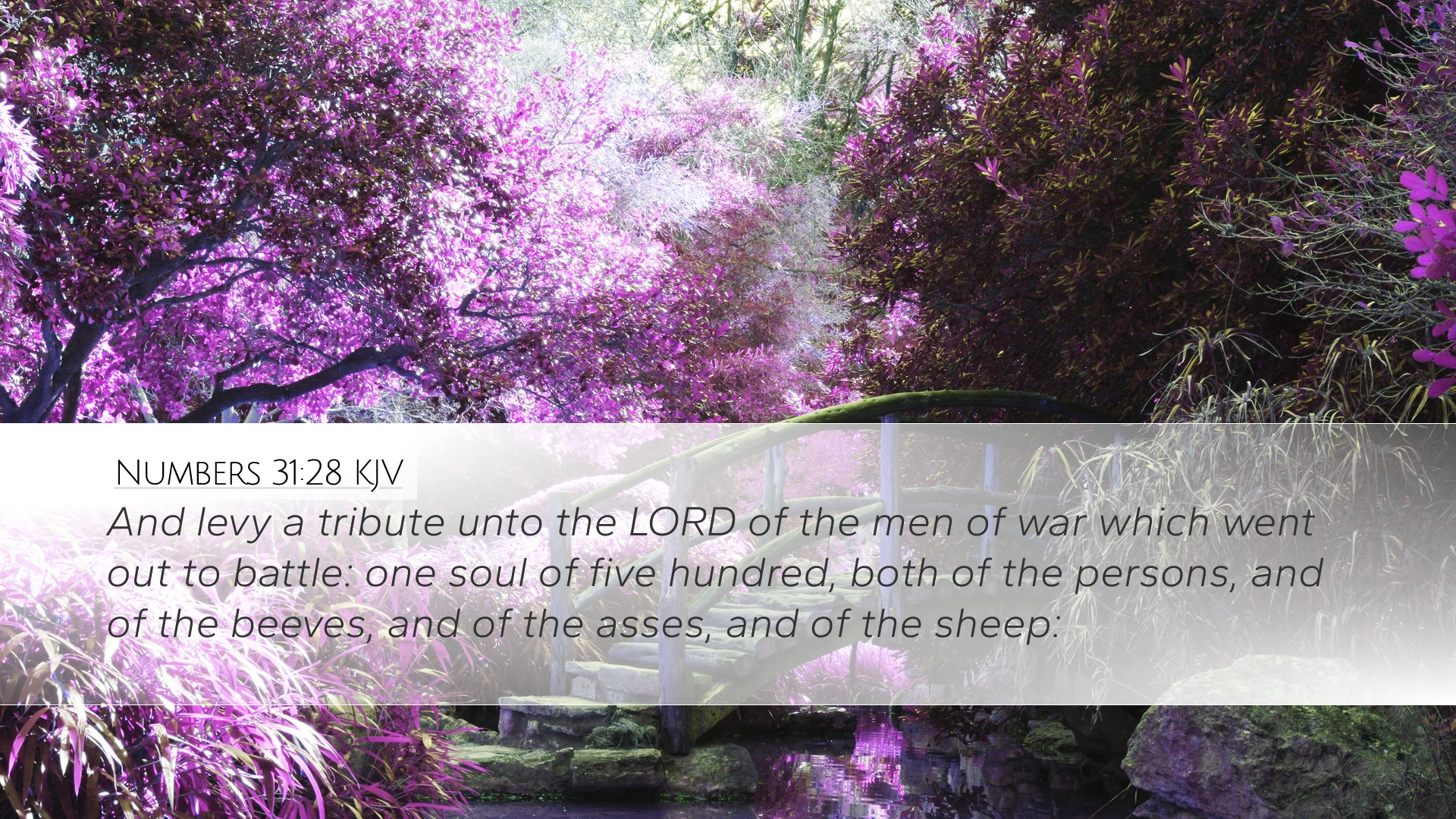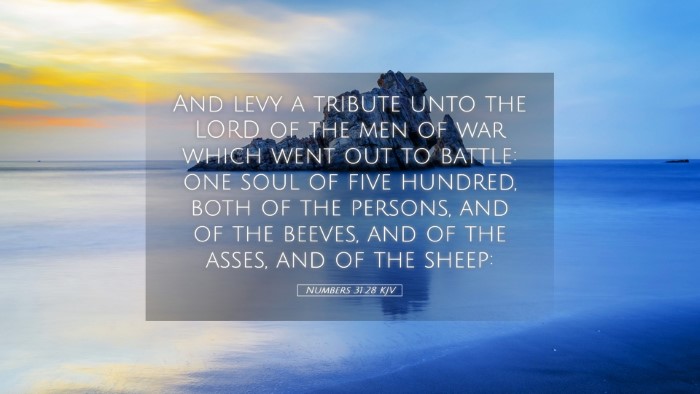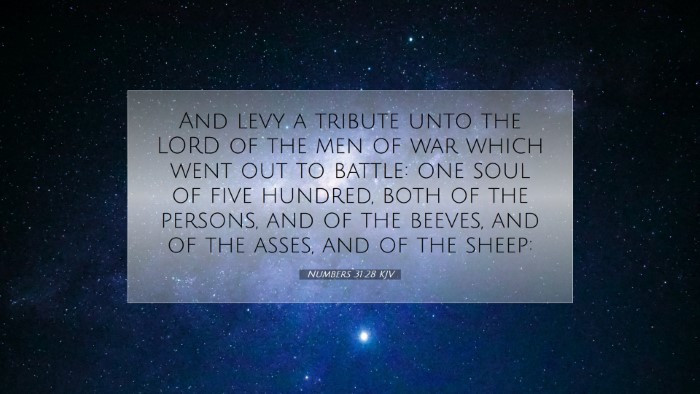Commentary on Numbers 31:28
Numbers 31:28 states:
"And levy a tribute unto the Lord of the men of war which went out to battle: one soul of five hundred, both of the persons, and of the beeves, and of the asses, and of the sheep." (KJV)
This passage comes from a larger narrative where the Israelites are instructed regarding the spoils of war after their victory over the Midianites. The verse highlights the principle of dedicating a portion of the spoils to the Lord, specifically through a tribute, emphasizing the necessity of recognizing God's sovereignty and provision in warfare and victory.
Theological Significance
The act of levying a tribute is rich in theological significance, illustrating several core ideas within the context of Israel's covenantal relationship with God.
- Covenantal Obedience: The tribute reflects Israel's obligation to honor God with the fruits of their labor and victory. This connection between obedience and divine favor is seen throughout the Old Testament.
- Divine Sovereignty: The allocation of spoils acknowledges God's sovereignty over the battle, stressing that the victory belongs to Him. It is a reminder that God empowers His people to achieve victories but demands recognition of His role in their successes.
Insights from Commentaries
Matthew Henry: Henry emphasizes that the tribute is a reminder that we are stewards of what the Lord has provided. He notes that while the soldiers fought valiantly, it was God who ultimately led them to victory. Therefore, dedicating part of the spoil to God serves as a declaration of acknowledgment and gratitude. Henry also underscores that this tribute fosters a spirit of thankfulness, indicating that not all we possess is solely by our own efforts.
Albert Barnes: Barnes discusses the logistical aspects of this command, suggesting that such tributes served an important role in the community and religious life of Israel. He interprets the tribute not only as a call to acknowledge God’s sovereignty but also as a means of supporting the needs of the Levitical priesthood. The divided spoils allowed for a continuous remembrance of God's provision in the community, reinforcing the idea that service within the community is linked to the worship of God.
Adam Clarke: Clarke offers an insightful interpretation regarding the quantities and types of animals specified in the tribute. He indicates that differentiating among categories of animals (like sheep, asses, and beeves) may reflect varying values and roles within Israelite society, symbolizing different offerings being presented to God. Clarke notes that the tribute system demonstrates the diversity of God's provision, acknowledging all gifts as being worthy of dedication to Him. Furthermore, he conveys that such rituals are vital in maintaining a culture of remembrance and dedication to God among the people.
Practical Applications
This passage prompts several key applications for contemporary believers:
- Recognizing God's Provision: Believers are encouraged to view their victories and successes in life as gifts from God. Regularly dedicating portions of one’s time, talent, or resources can cultivate an attitude of gratitude and recognition of God's overarching presence in every aspect of life.
- Community Responsibility: The tribute serves as a model for community engagement and resource sharing within the church. Just as the Israelites shared their victories with the priesthood and the community, modern believers are called to contribute to the needs of their local and global communities.
- Worship through Giving: This passage reinforces the principle of thanksgiving through offerings. Believers can establish practices that honor God with their resources, reminding them continually of His generous provision.
Concluding Thoughts
The command in Numbers 31:28 to levy a tribute to the Lord serves as a profound reminder of the interplay between divine sovereignty and human responsibility. It calls believers to recognize their dependence on God while acting faithfully in gratitude and obedience. Through the insights of Matthew Henry, Albert Barnes, and Adam Clarke, we gain a deeper understanding of the importance of dedicating our victories to God, promoting a culture of worship, community support, and intentional remembrance of His goodness.


